The gas-fired barrel roaster rumbles along for a few minutes, then a crackle sounds. It’s like a dry twig snapping. Scott Bogart checks a temperature gauge.
He nods, twists a handle, and pulls out a hot sample.
The coffee beans in the sample tube are turning from the delicate green of new lettuce to a shade like straw.
Roasting Stages
“First crack,” Scott says, explaining that the cracking sound is water being released from the beans. “Smell that?” He brings the sample close enough to sniff. “Wet grass.” The first-crack beans do smell like grass after a light rain.
Scott’s wife, Regina, smiles broadly from the counter. She’s preparing bottles of cold-brewed coffee and hibiscus tea for a farmer’s market. “Scott has all these names for the smells at every point of the roast,” she says. “Next will be hay.”
“Alfalfa,” Scott says with a grin of his own. Then comes the aroma of baking bread. A hint of caramel, and this batch is finished. Today he’s doing a blonde roast. The beans come out a rich shade of pumpernickel. They don’t have the oily sheen associated with dark roasts, but they do pack a lot of caffeine.
Scott is an artisanal roaster, creating small batches 25 pounds at a time. He keeps a log for each batch. Ambient temperature, humidity, and time in the roaster all affect the roast.
A Family Affair
Regina met Scott while she was working as an attorney in Guatemala. She runs Kuxtal’s storefront and prepares products for retail and wholesale customers. She’s especially enthusiastic about farmers markets, including the Lago Vista Farmer’s Market on Friday afternoons and the Lonestar Farmer’s Market in Bee Cave on Sunday mornings.
When Regina can’t make it to open up shop at 6 a.m. — as when the family travels to source new products or to coffee shows — Crystal Shirley is there for her. “Crystal has the same passion for this work as we do,” Regina says.
The Bogarts opened Kuxtal Coffee and Tea in 2013, but their affinity for coffee extends much further. Regina’s family has grown coffee for generations. Her uncle owns one of only thirty-four farms certified by the Antigua Coffee Growers Association (known by its Spanish acronym APCA).
True Antigua Guatemala coffee is very rare, Scott says, emptying a tote of green coffee beans into the hopper for another batch.
“Geisha coffee is even more rare,” Scott adds. He notes that a cousin of Regina’s is growing that variety. The Bogarts plan to buy every bean of his Geisha crop this year.
On the family’s farms, coffee is grown at high altitude in shade. Workers prune the shrubs and keep the rows weeded to allow air circulation. This helps limit its susceptibility to roya, a fungus that can devastate coffee plantations.
They hand-pick the bright-red coffee cherries, wash the cherries with pure spring water, and dry them on racks in the sun. After drying, a machine removes the hulls.
Branching Out
Kuxtal is into more than just coffee and tea. As the roast tumbles in the drum, browning a little more each second, Lago Vista’s fire inspector enjoys a hot ham sandwich created by Regina.
He also considers one of the handmade hats the Bogarts brought back with them from Guatemala. Examples of the weaving traditionally done by indigenous people there bring even more color to the store.
A new pizza oven will soon be baking New York–style pizza, which they plan to deliver on the North Shore. Whenever possible, Kuxtal sources local, organic vegetables and meats from farmer’s markets.
Another customer comes in, enthused about a cup of chilled kombucha. Kuxtal is in talks with a South Congress tea bottler to sell surplus scobies, those solid caps that grow over each batch of kombucha.
Kuxtal ferments the fizzy, tart kombucha by starting with certified organic black tea. It’s no surprise that this tea is grown and processed by an indigenous cooperative in the Guatemalan highlands.
Cacao and cardamom are also commodities Kuxtal will soon be importing from the highlands. Scott enthuses about the cacao’s cultural significance to Guatemala’s indigenous people.
The Ramones?
Coffee, tea, cacao, and even cardamom are familiar to Texans. But the Bogarts are excited about a lesser-known product from the Guatemalan highlands: a high-protein nut from a tree called ramón. New to the American market, the nut has been used by the Maya for centuries.
Scott explains that they are experimenting with roasting the nuts — which are naturally free of gluten — and grinding them for flour. They plan to use the ramón flour to develop protein bars, cookies, and even pizza dough.
“We did a test at the house the other night,” Scott says. He looks at the floor. “It didn’t turn out like I wanted. I used a rice flour along with the ramón flour.”
Regina tries to cheer him up. “It was edible,” she points out.
“Yeah, it had great flavor, but I couldn’t get it to hold together.” They laugh.
Direct Trade
Scott sees Kuxtal’s business practice — what he calls direct trade — as fair to both producers and consumers. He points out that the fair trade certification process is expensive. It ends up adding layers of bureaucracy to the exchange.
“How can you get more fair trade than going to the indigenous co-op, buying directly, and selling to the consumer?” The co-op names a price, he says, and Kuxtal pays what they ask. Then they charge what they need to make a living.
“From day one with this business, we buy from family farms, we buy from friends’ farms. Direct from the farmer to the consumer.”
A Bright Outlook
Along with selling direct to the consumer from its storefront and food truck, Kuxtal supplies Lowe’s Market in Lago. You can pick up fresh-roasted whole coffee beans and bottled cold-brew coffee and hibiscus tea from the grocery store.
With all the news about coffee’s health benefits, it’s not surprising that Austin-based fitness nutrition company Onnit carries a dark-roasted version of Kuxtal’s Antigua Guatemala. Onnit is also interested in selling a protein bar that uses ramón.
Drop On By
Visit Kuxtal on Facebook, call 512-705-2633, head out to a farmer’s market, or drop by 6004 Lohman’s Ford.
If you haven’t tasted kombucha or hibiscus tea, you’re in for a treat! Ready for a gustatory adventure? Ask to sample some brewed ramón nut.
Perhaps a shot of cold-brewed or drip coffee or an espresso drink is more to your taste.
With luck, you’ll happen by on a day that Scott’s roasting coffee. Watch the beans turn from green to toasty brown before your eyes as the rich aroma of the roast pervades the shop.
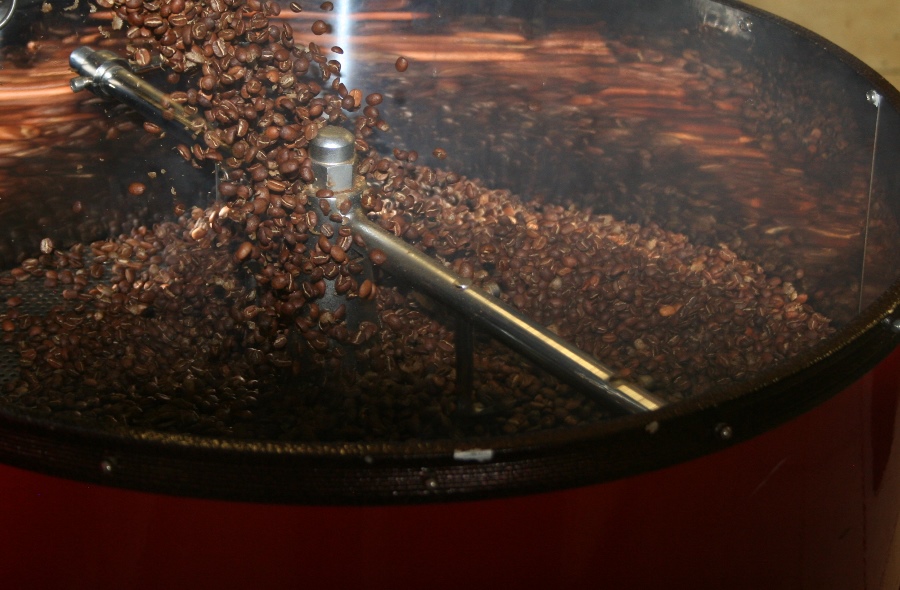
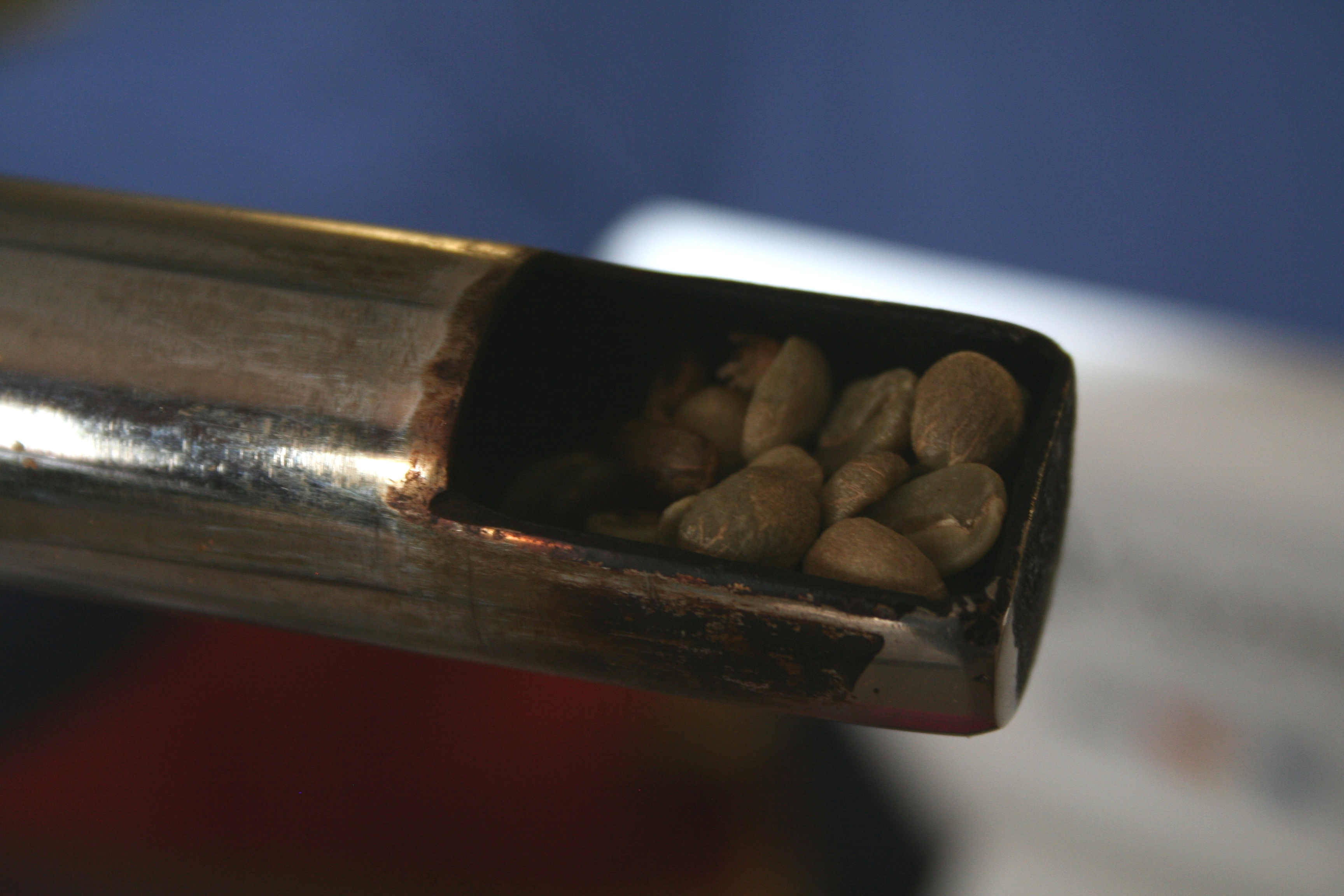
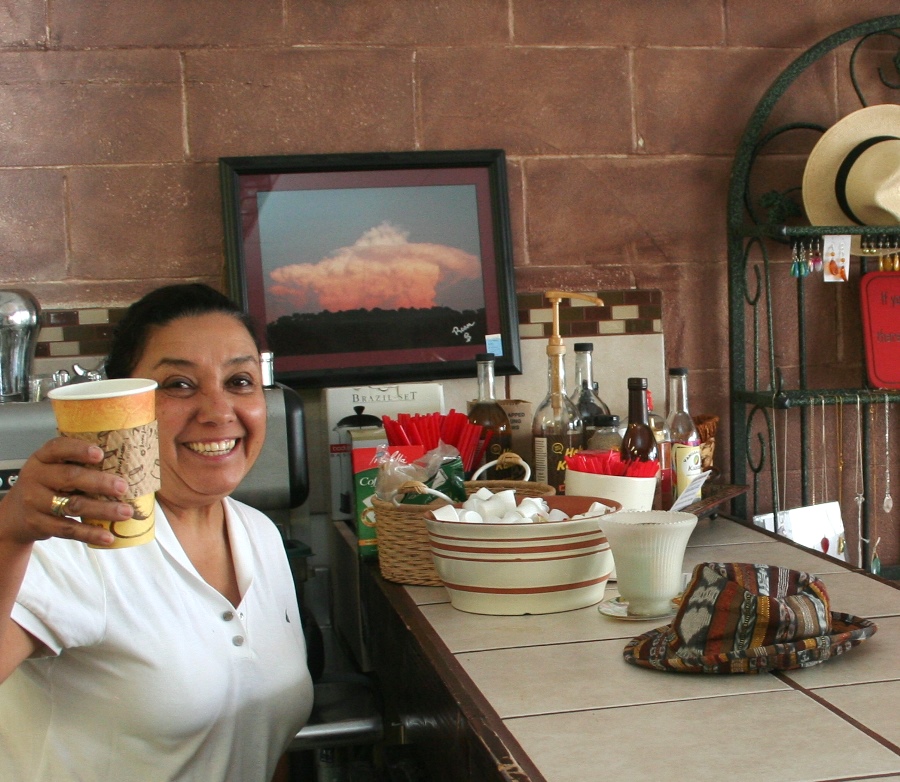
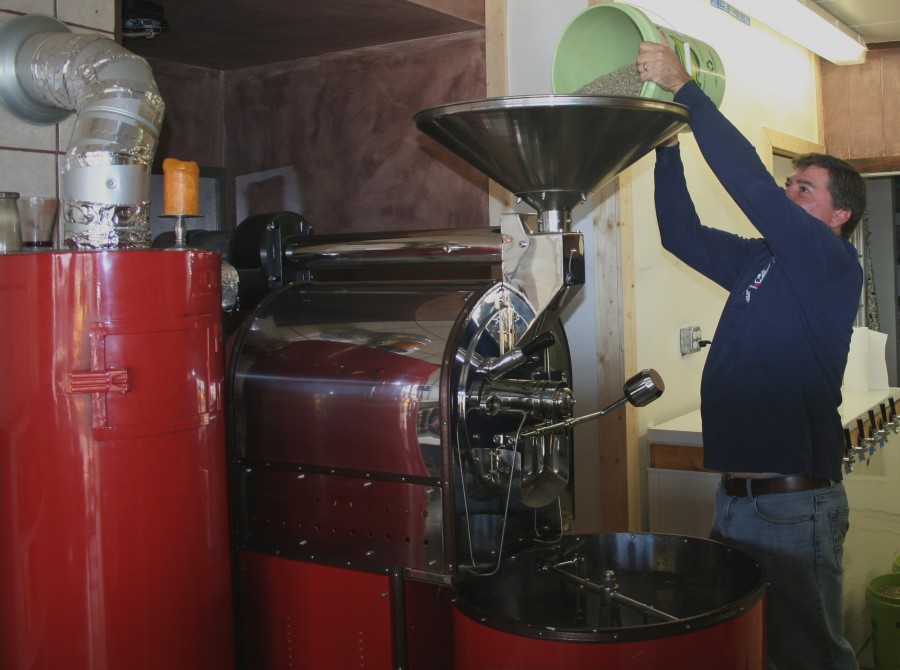
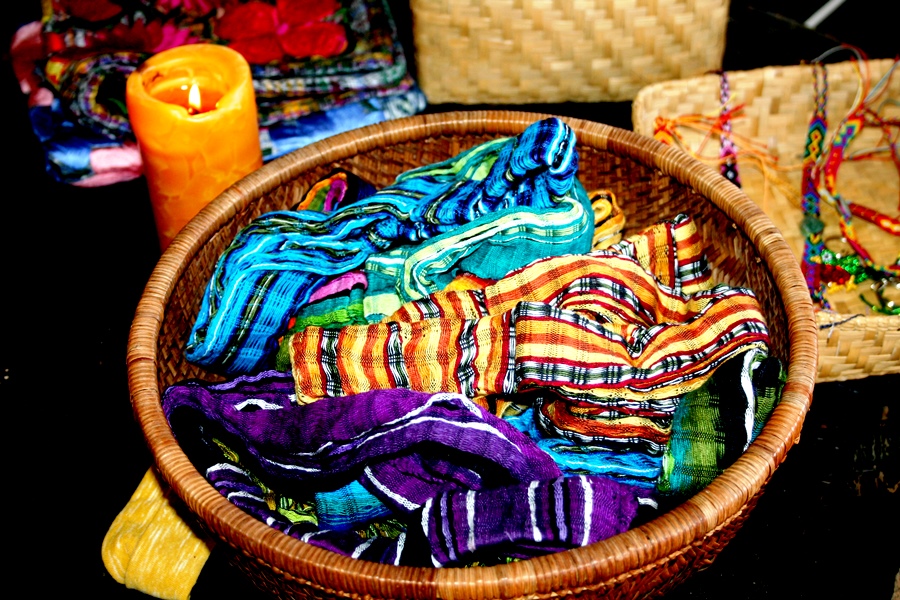

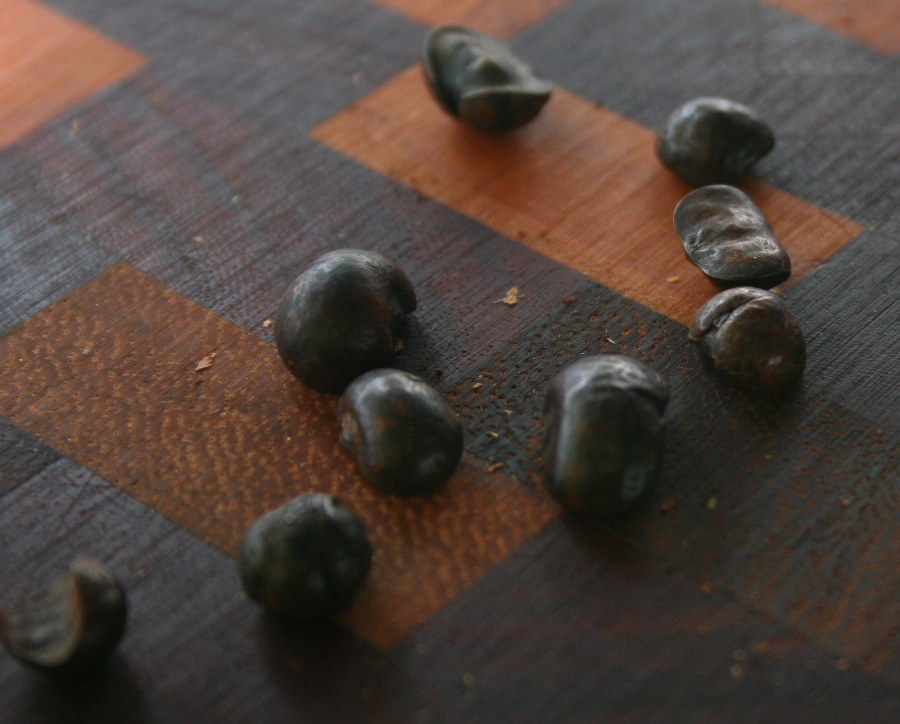
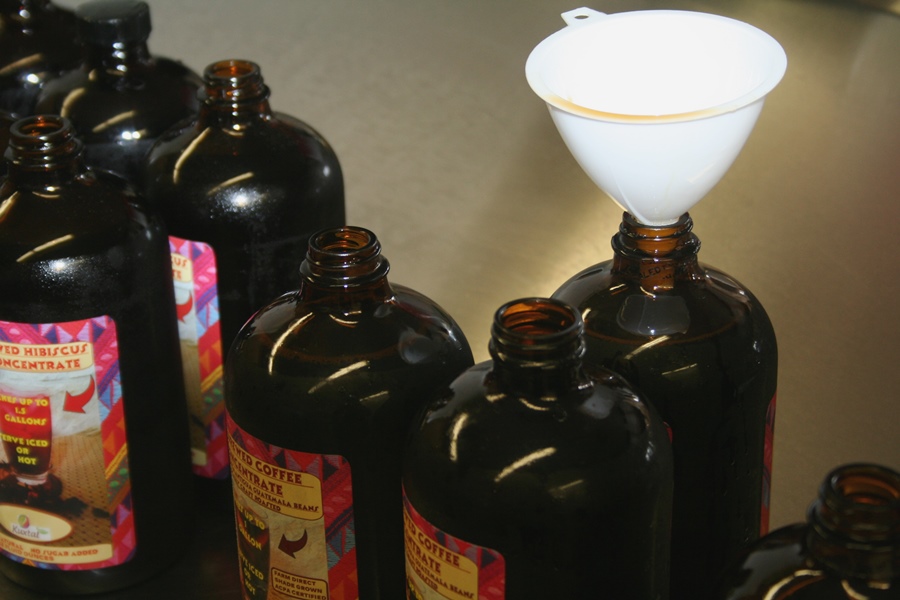
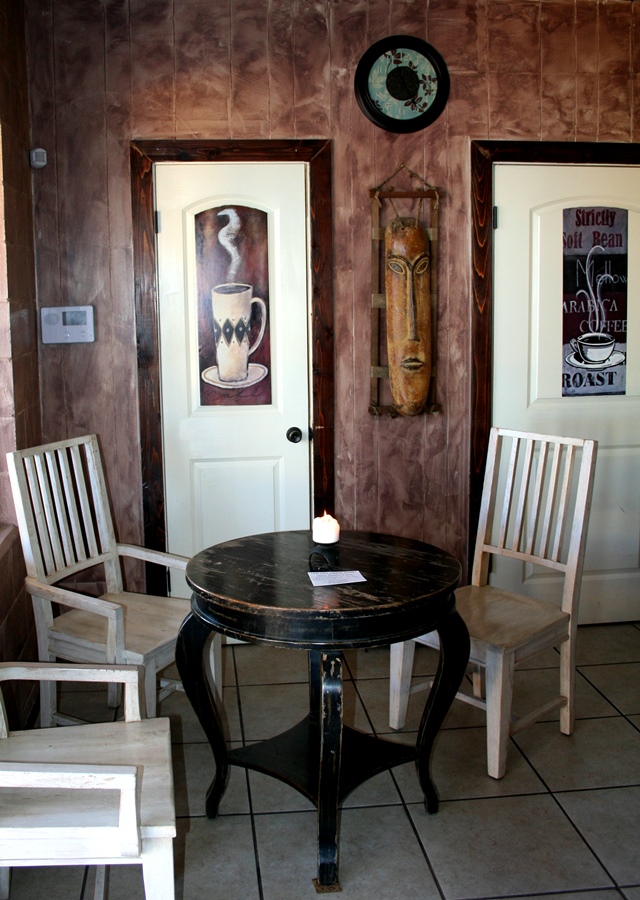
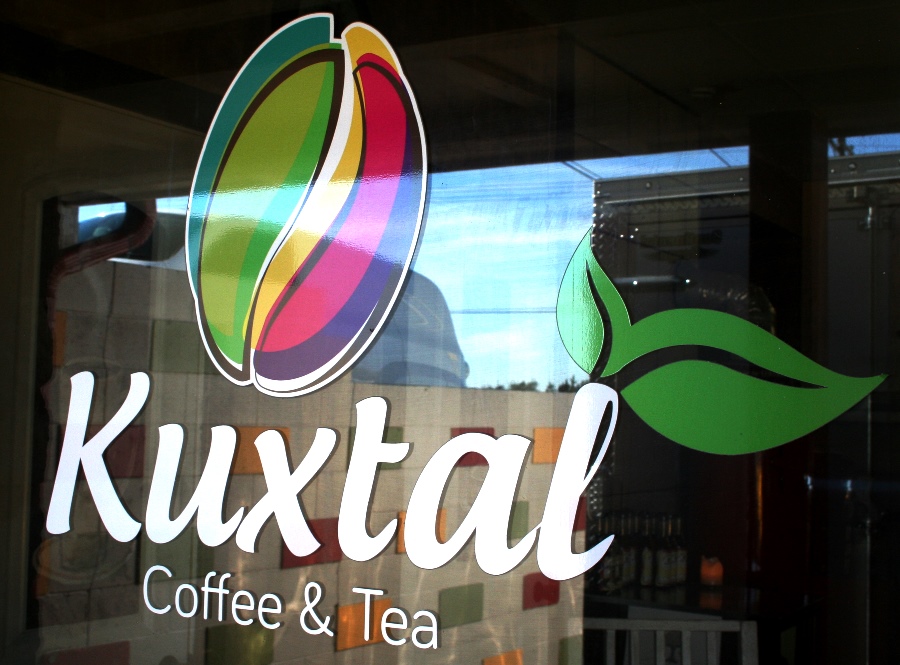
Great coffee and good article.
Regina and Scott offer great coffee and various items for sale, all, with a great smile!
David & Vivian
Lago Vista, Tx
We’ve been happy and satisfied customers of Kuxtal and Guatemalan coffee for years.
Scott and Regina consistently excel in their craft and their products.
Stop by & consume!
I agree their coffee is awesome! What a great asset to Lago Vista. And what a wonderful article – great writing, Sandra!